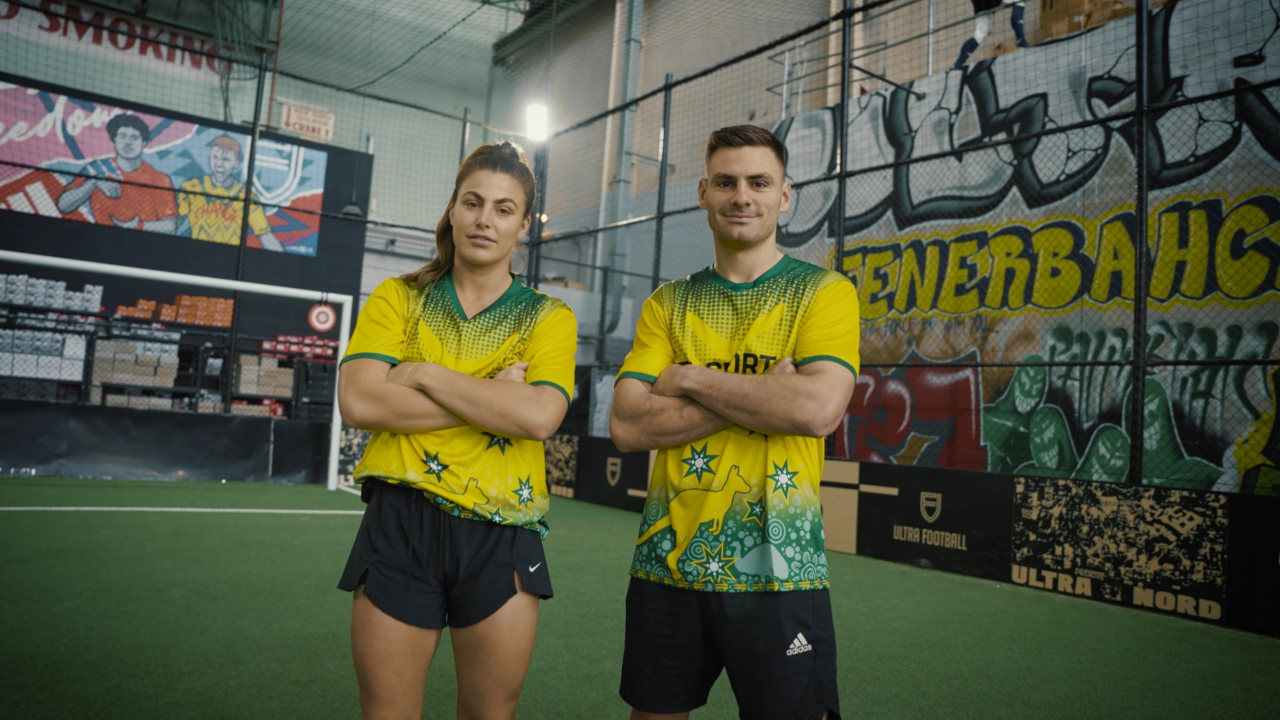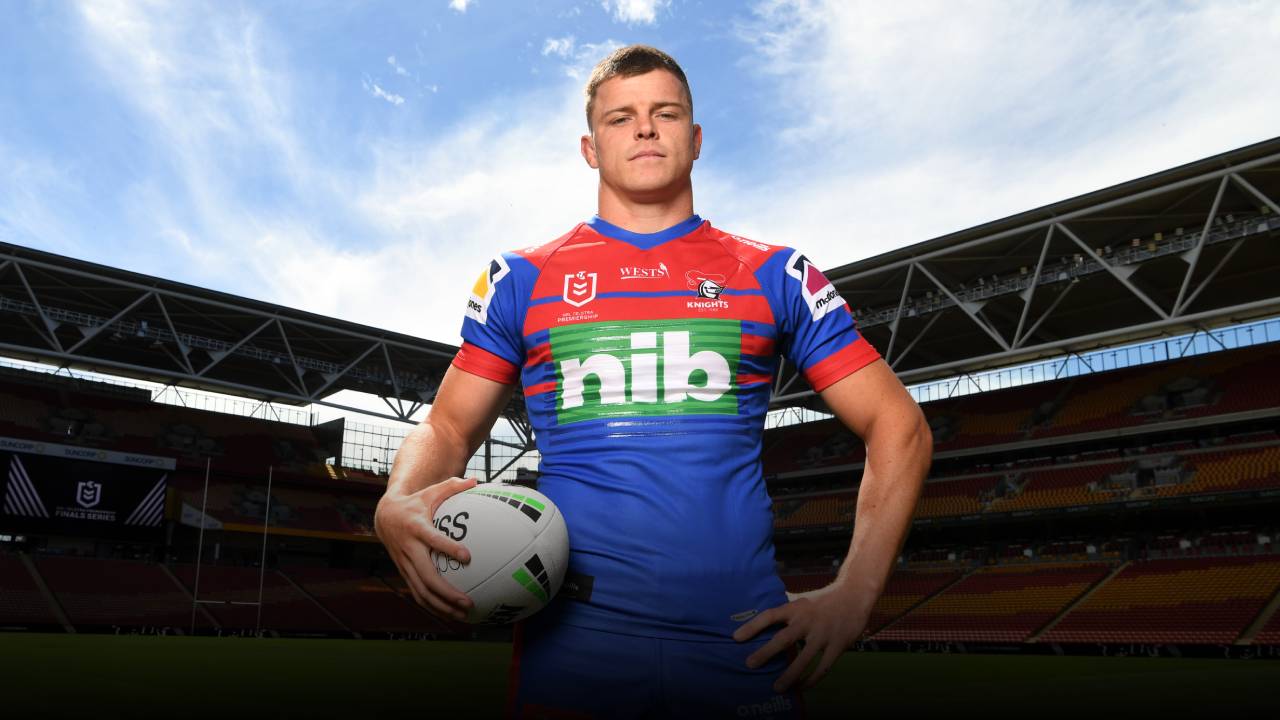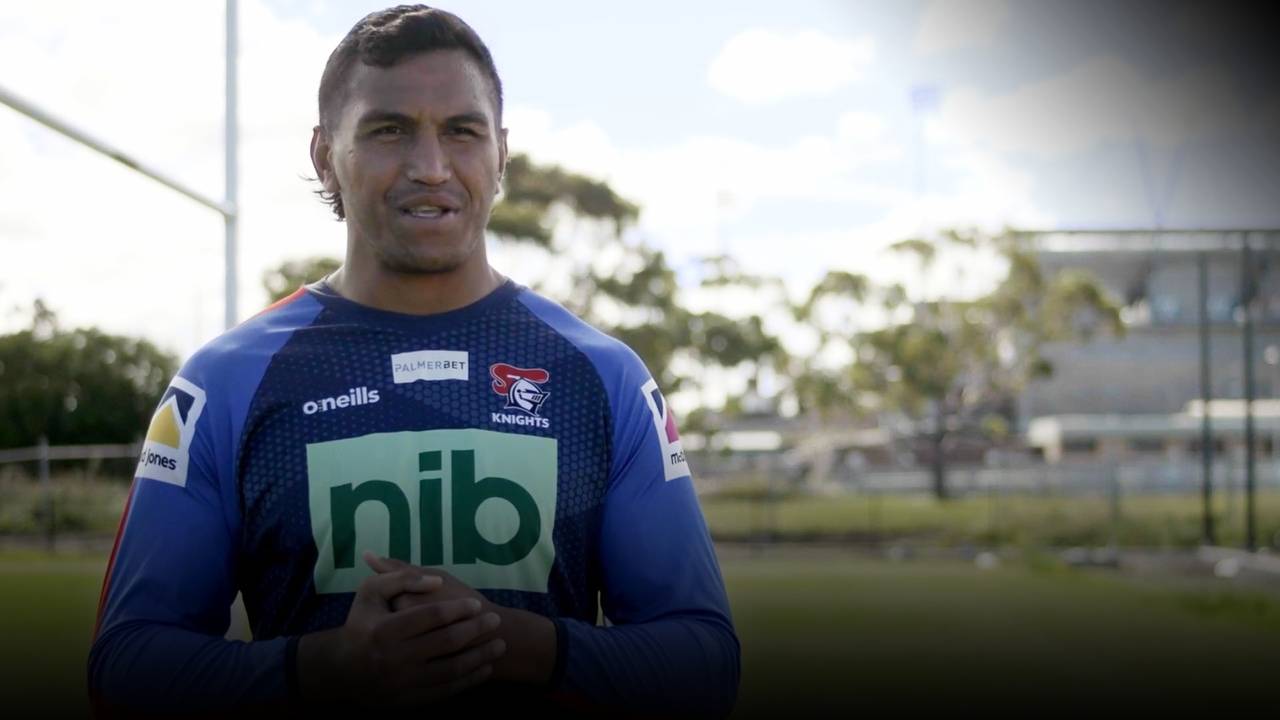I DIDN’T HAVE A CLUE
When I first met Bennett, I was frightened of him. I was a very, very shy kid and he was as revered then as he is now.
I was always a bloke who just loved to play footy and I’d just turn up, I didn’t worry about it, didn’t even think about, just turned up and ripped in.
But then this opportunity had fallen into my lap. I knew how many of my mates had lusted over this opportunity and I knew I’d got it by accident.
I didn’t have a clue how to attack it, what to do. I was armed with a work ethic you couldn’t jump over because of the way my parents had raised me. But I needed someone to tell me which direction to employ that ethic. I had no-one to ask because I wouldn’t ask Wayne, I wouldn’t ask coaches. You know when you try to hang onto something so tight it starts to slip through your fingers? That’s where I was at.

I’d lost heart with footy. I didn’t want to be in Brisbane. I wasn’t enjoying playing because I was trying hard but I was under pressure and I was failing. If my father hadn’t been killed that year, that’s where it would have ended.
I would have gone back to the bush and did whatever. It wouldn’t have worried me if I wasn’t going to be a footballer.
To lose my dad the way we did – he was there one day and gone the next – it nearly destroyed me.
We were very close. I had all these dreams, we both did, about being on a farm together and building a business, and I wanted to do that.
I went back home and it was an enormous struggle to make any sense of it all. When someone dies so shockingly and quickly, you’ve got no time to gather your thoughts.
His death coincided with my losing faith in what I was doing in Brisbane, so I put those two things together.
Dad was killed in an industrial accident because he was working away from our family farm, because our farm was no longer viable.

The Broncos were wonderful. They gave me all the time I needed and said, ‘come back when you’re ready’. Six weeks passed and I was still home, we had to sell stock and do these difficult things and I hatched this plan. I told mum, ‘I’m going to stay and run the farm’. It was completely foolish and ignorant to think that. My father hadn’t been able to make it work with a lot more experience.
I told mum, ‘this is what I’m going to do’. Mum said, ‘I don’t think that sounds like a good idea’. I said ‘it does’ and she said ‘it doesn’t’.
An interaction between a mother and son like that at any other time would be completely normal, but for us, in the depths of despair, it developed into a blue which ended in me saying, ‘I’m doing it’.
She said, ‘that’s fine, you can do it, but you’re not doing it here, you’re not welcome, you can find somewhere else to do it.’
I took it very personally and I went with my tail between my legs back to Brisbane.
I couldn’t believe mum had done that to me because all I wanted to do was help her and help save what was our family farm. But I was very childish about it.
I took it badly. With the benefit of hindsight we had this conversation. She told me, ‘when you said that all you wanted was for me to let you do it, I was so frightened. I had no money, nothing to hang onto’.
My older brother had already moved and we were leaving her there by herself and she was petrified of that. But she knew she couldn’t let me do it.
To lose my dad the way we did – he was there one day and gone the next – it nearly destroyed me.
If I’ve got a hero in this world it’s her, for moments like that. My mum is from that generation. They’ve got ticker.
The shit people whinge about today in this world and won’t face up to. My mother is the opposite, from a stoic generation of people who know the world is tough, that things don’t always fall the way you want them to and whinging and carrying on and making a lot of noise might make you feel better for five minutes, but it gets nothing done.
She’s a lean-into-the-wind-and-get-it-done sort of person. That she could do that for me at a time when she was so vulnerable herself speaks to who she is, and if I can turn out half the person she is, I’ll be going ok.

THE ONE THING I REMEMBER
When my dad was killed, I rang Wayne and told him. He didn’t know my dad and I wasn’t really more than a maybe, maybe player to him, one of a group of 500 who possibly could have made it.
He didn’t owe any special allegiance to me. The club sent a beautiful bouquet of flowers which is all they owed us.
Dad’s funeral was a really tough day and I remember three quarters of bugger-all about it.
But there’s one thing I do remember. My brother and I coming out of the church, we were at the head of the coffin as pallbearers. The little church in Leyburn is on the side of a hill and it was full, a million people were there. I looked over to the hill and saw this tall, skinny fella and it was Wayne.
It was a day when we thought we’d lost everything we could control, and dad was ripped away from us.
What you’re left with is the feeling that you’re like an ant, you’re insignificant and could be stood on. We felt that way. We were a little family, a little footprint on this world and we felt dad’s gone and it doesn’t matter and it’s never going to matter.
People say, ‘of course he would have gone, you were part of the club’. But I wasn’t really.
That he would take the time to drive the three hours to come and do that …
We were rugby league people. My dad loved it. That Wayne Bennett came to my father’s funeral made it feel that my father was important and that it mattered to the world.

Sometimes when I tell this story I think it sounds a bit shallow, but that’s the effect it had. On a day that felt like hell, him being there made it a little bit easier, and I will never ever forget it.
Years later, I found out more.
Dad was killed the night of the second State of Origin in 1994. We got that phone call 2am on Thursday after the game the night before. You can imagine every time I played the second game in Origin what I was thinking.
The Broncos were doing it tough that year. It had got to the point where we’d have to win every game and hope other results went our way to make the finals.
When dad was killed and his funeral was coming up, it was a must-win game. Dad was buried on a Friday and it was a weekend. On that day was the captain’s run, your final session before you play, the most important day of the week.
It pulls all the loose cords together.
On a day like that in a period when you have to win every game, he would never not be at that training session. On that day, he wasn’t there. He was at my father’s funeral. For him to do that was an enormous decision to make.
He put us first. There’s a very good reason I never played anywhere else, a very good reason I’ll never bag Wayne Bennett, a very good reason that any time I’m asked I will always fall to his side, and it’s because of that.
Can you imagine the loyalty that would engender in me that he would do that for us?
People talk about Wayne Bennett and wonder why he’s such a good coach. He knows all the things you need to know to be a good footy coach. But what he knows, as does a bloke like Craig Bellamy, is that if you properly care about your footballers, you help fix their life away from the game, they’ll pay you back ten-fold in the game.
That’s what they worked out long before anyone else and what makes them such great coaches.
More about: Brisbane Broncos | Coaching | Craig Bellamy | Queensland Maroons | State of Origin | Wayne Bennett




 Load More
Load More